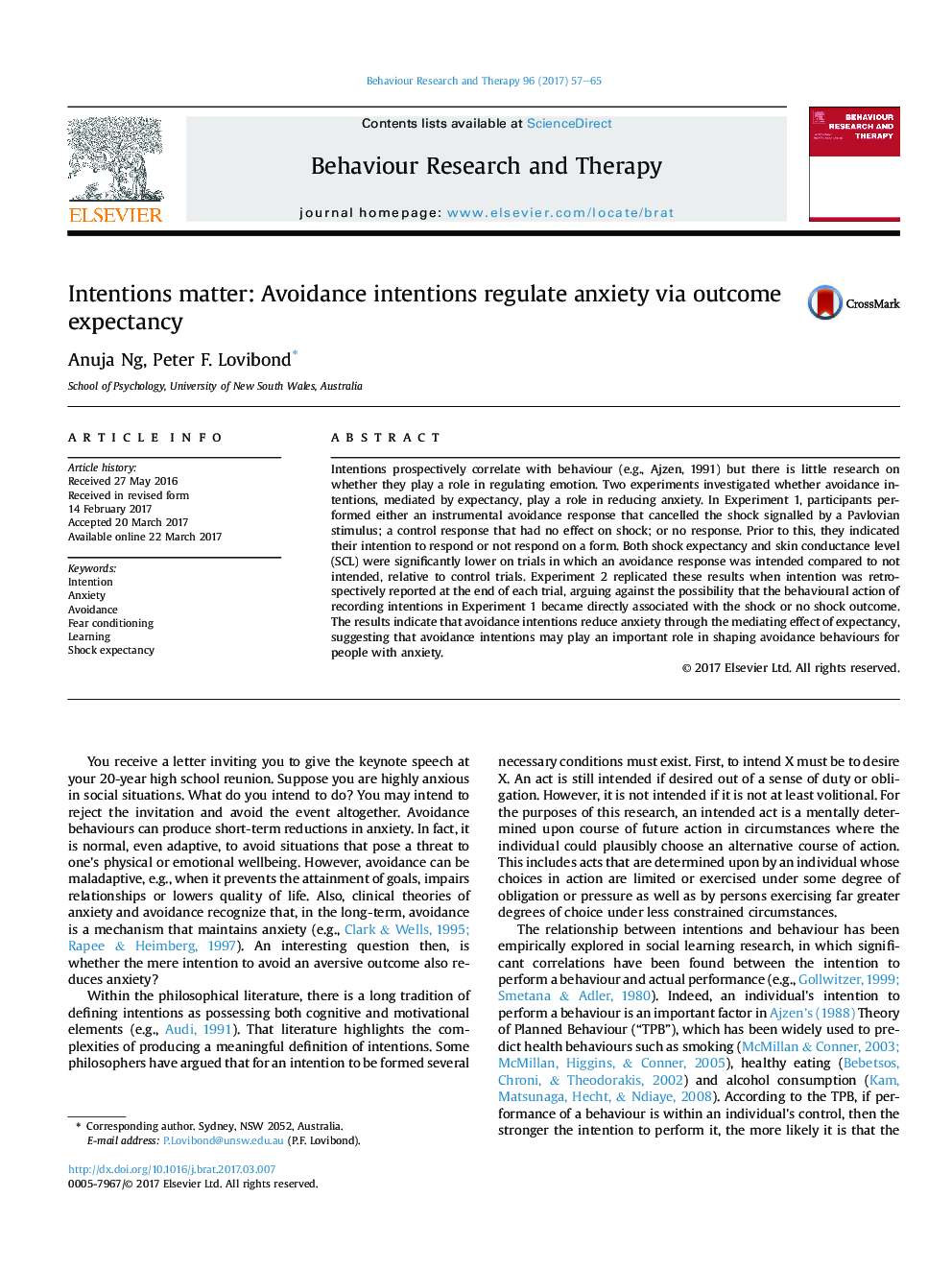| کد مقاله | کد نشریه | سال انتشار | مقاله انگلیسی | نسخه تمام متن |
|---|---|---|---|---|
| 5038129 | 1472753 | 2017 | 9 صفحه PDF | دانلود رایگان |
- The mere intention to perform a response to avoid shock reduced anxiety in humans.
- The effect was observed on both skin conductance and self-reported shock expectancy.
- Intentions may play a causal role in regulating emotion, mediated by expectancy.
Intentions prospectively correlate with behaviour (e.g., Ajzen, 1991) but there is little research on whether they play a role in regulating emotion. Two experiments investigated whether avoidance intentions, mediated by expectancy, play a role in reducing anxiety. In Experiment 1, participants performed either an instrumental avoidance response that cancelled the shock signalled by a Pavlovian stimulus; a control response that had no effect on shock; or no response. Prior to this, they indicated their intention to respond or not respond on a form. Both shock expectancy and skin conductance level (SCL) were significantly lower on trials in which an avoidance response was intended compared to not intended, relative to control trials. Experiment 2 replicated these results when intention was retrospectively reported at the end of each trial, arguing against the possibility that the behavioural action of recording intentions in Experiment 1 became directly associated with the shock or no shock outcome. The results indicate that avoidance intentions reduce anxiety through the mediating effect of expectancy, suggesting that avoidance intentions may play an important role in shaping avoidance behaviours for people with anxiety.
Journal: Behaviour Research and Therapy - Volume 96, September 2017, Pages 57-65
